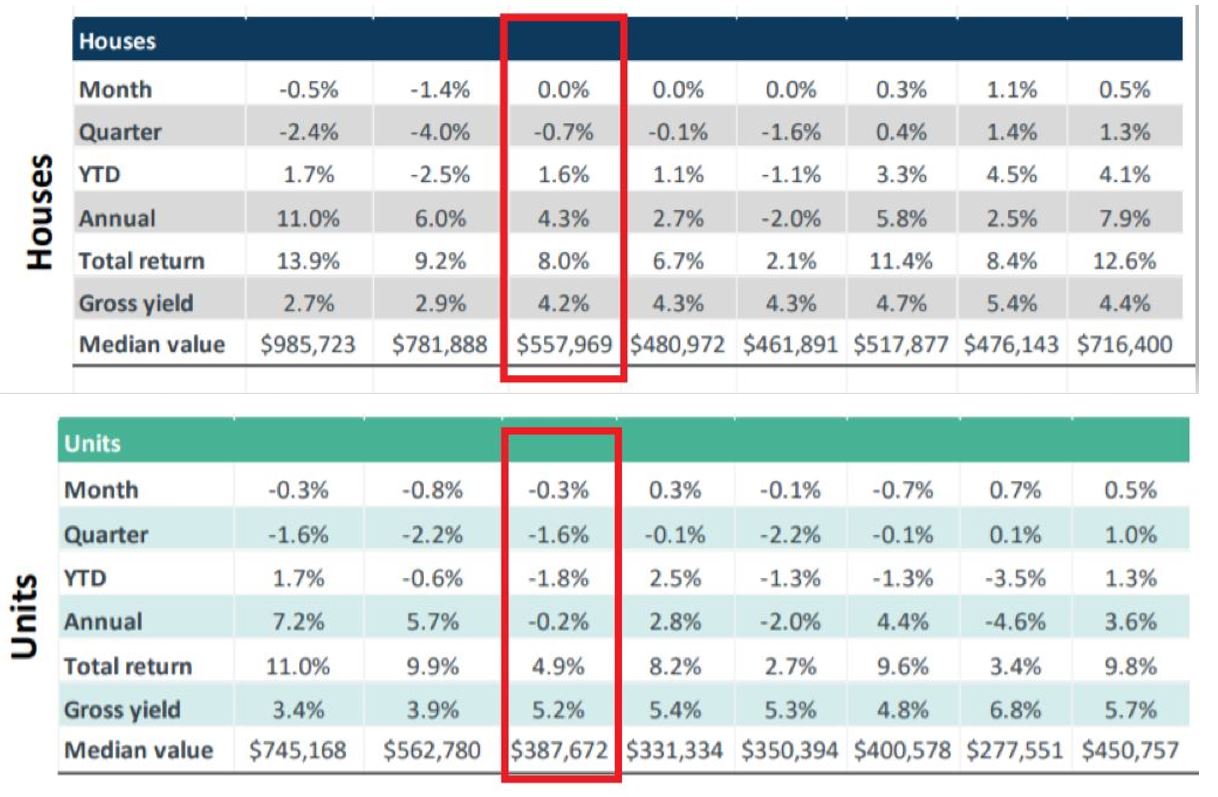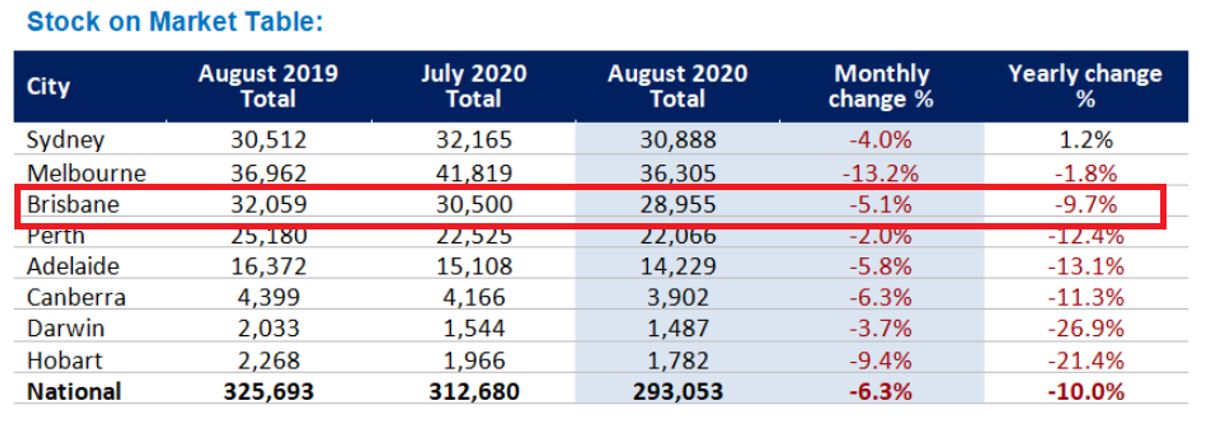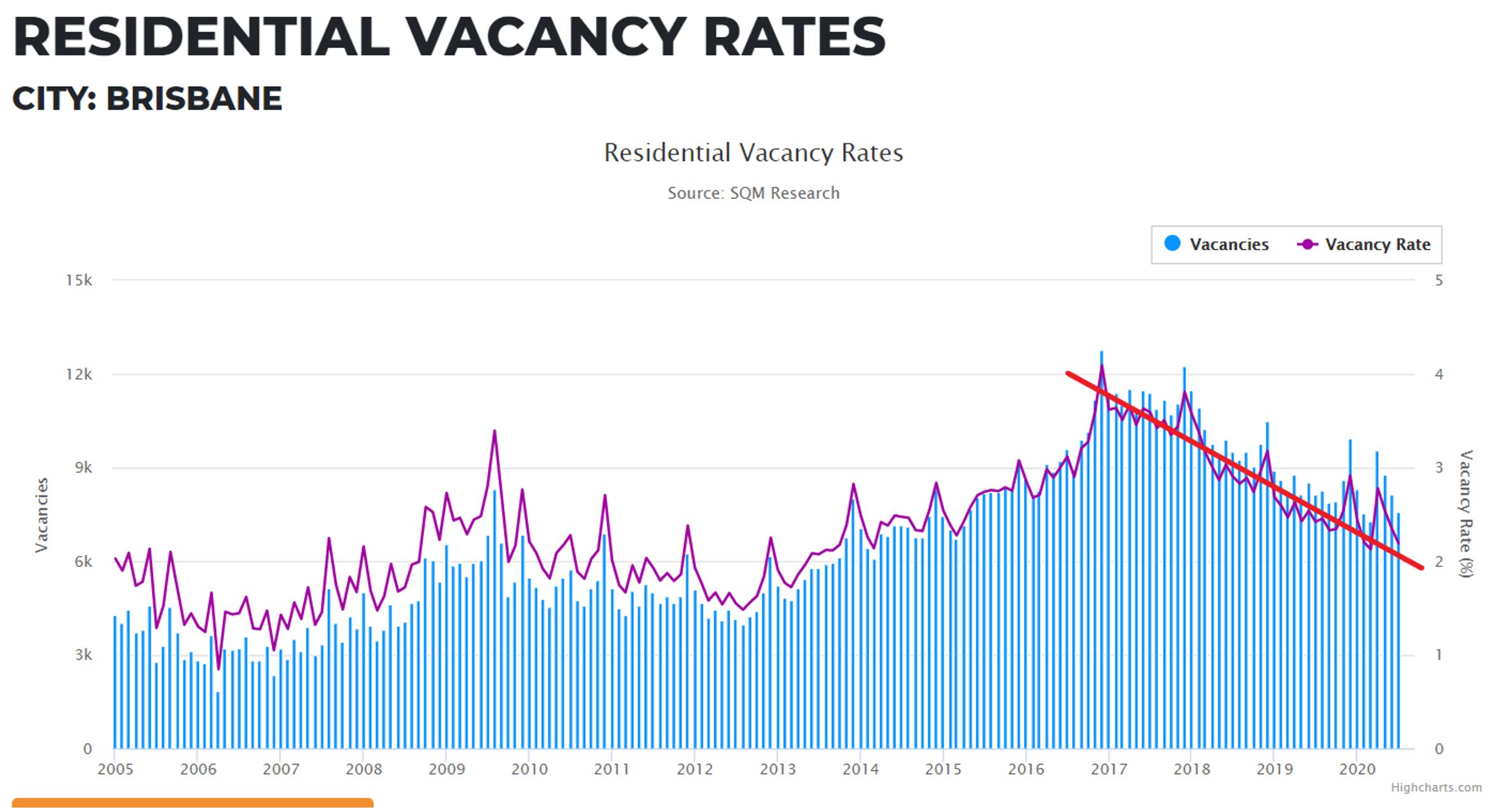Brisbane property market update – August 2020
Brisbane continues to show its resilience to price falls throughout this pandemic, and we are seeing more strength in the rental market as well.

The latest Corelogic Data shows overall dwelling values in Brisbane declined -0.1 per cent, but houses were stable and the decline came from the unit sector, down -0.3 per cent. Since January, Brisbane house values have reported an increase of 1.6 per cent, despite the pandemic, and yet unit values have slipped -1.8 per cent.

This stability has been seen in Brisbane, despite very early predictions from many of price falls across all Australian markets. The price changes in Melbourne have been more pronounced, with -4 per cent coming off the value of houses and -2.2 per cent off units over the last three months. On this basis, it seems that the performance of the housing market is intrinsically linked to the number of coronavirus cases in a particular region and the subsequent policies in place around social distancing. Stage 4 shutdowns seem to have had a big impact in Melbourne.
That said, in Brisbane, despite small cluster outbreaks from time to time, our strict border control measures appear to be keeping the virus under control. Most of us are able to return to the labour market, sentiment is fairly strong and we seem to be able to move around with a certain degree of freedom. This is all very positive for our local property market as well.
According to SQM Research, listing volumes are still 9.7 per cent lower in Brisbane than they were 12 months ago, and in the last month alone (between July and August 2020) listing volumes were down a further 5.1 per cent so we expect transactions volumes will remain low for some time yet, simply due to limited supply.

New research from realestate.com.au has revealed that Queensland property seekers are the most confident buyers in Australia. In Brisbane the suburbs with the highest views per listing according to realestate.com were as follows:
• Ashgrove Qld 4060
• Kalinga Qld 4030
• Chandler Qld 4155
• Holland Park Qld 4121
• Tarragindi Qld 4121
• Stafford Heights Qld 4053
We can confirm from being on the ground that these areas have strong demand from buyers with many properties going to multiple offer very soon after being listed. These are some of the areas that are outperforming, with upward pressure on prices. The high number of buyers, combined with limited listings, tends to have this effect.
The rental market in Brisbane remains resilient also at this time. We are seeing the vacancy rate at a city level continuing its downward trajectory, after an initial spike from March to April 2020.

Since then, rental markets have tightened, with many markets across Greater Brisbane experiencing the tightest vacancy for many years. We are also seeing multiple applications from prospective tenants being submitted on properties for rent, illustrating the shortage of quality rental properties available.
There remain some “at risk” locations in certain pockets of Brisbane. For example, postcode 4000 (which includes the Brisbane CBD) has a local vacancy rate of 13 per cent, which is extremely high-risk for an investor who may be looking at buying into that market.
While there is no evidence of distressed properties coming to the market in Brisbane, there continues to be talk about the economic cliff that is apparently ahead of us. Once JobKeeper and JobSeeker payments ease, and mortgage repayment deferrals stop, perhaps some people may need to sell as they are no longer able to hold their property. We remain of the opinion that different markets around Australia will be impacted in different ways.
According to a recent NAB announcement, Australian Home Loan deferrals are broadly in line with the total portfolio spread. This means the exposure of some states to potential “forced selling” is much less than other states around the country.
Queensland makes up approximately 17 per cent of the total number of NAB Home Loan facilities and 16 per cent of the total Home Loans that have been deferred across Australia. Compare that with NSW/ACT, which makes up 38 per cent of the total portfolio but 40 per cent of the total deferrals, and Vic/Tas, which makes up 31 per cent of the total portfolio and 32 per cent of the total deferrals. Then there is WA and SA/NT with much lower exposure again.
This provides a greater level of confidence for property owners and property buyers in Brisbane, given our exposure is a lot less than other locations around Australia.
Shane Oliver, AMP chief economist, also updated his forecasts recently for Australians’ property market. His thoughts are that Sydney and Melbourne are more exposed to price falls given their higher dependence on international migration, higher debt-to-income ratios, higher price-to-income ratios and greater investor penetration.
Over recent years, Brisbane’s growth has been underwhelming compared with Sydney and Melbourne, for example. While the other capitals experienced amazing capital appreciation, Brisbane property values remained quite flat. This is because local drivers of supply and demand vary considerably between different locations. Different property markets behave in different ways during various market conditions, so there is no reason to expect the outcomes to differ considerably throughout this pandemic.
Brisbane properties are more affordable and our income-to-debt ratio is a lot lower. The amount of our take-home income that we spend on our mortgages here in Brisbane is also a lot lower. Property markets around the country are all responding differently as a result of the pandemic, and at this stage we remain optimistic about the performance of Brisbane in the months ahead.
